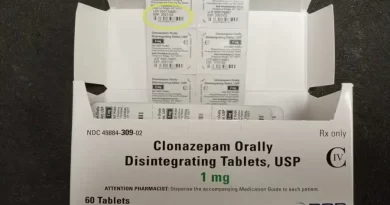Trump’s Challenge with Drug Price Negotiations
Costlier medicines including weight loss drugs for possible negotiations under the Medicare program
The upcoming Trump administration might find itself on a jittery slope regarding the Medicare drug price negotiations conducted during the current Biden administration. That might be because the process requires congressional authorization, while President-elect Donald Trump’s allies have already indicated what they intend to do.
Juliette Cubanski, deputy director of the Medicare policy program at KFF, a nonprofit group that researches health policy issues, while elaborating on the issue says, “We do know in the last Congress legislation was introduced by some Republicans to repeal the entire Inflation Reduction Act and get rid of the drug price negotiation program. Wiping the negotiation program off the books was also featured in Project 2025 and other Republican proposals we’ve seen in the past.”
She also added that it was clear that there was ideological support either from the Trump administration or from the allies, regarding doing away with the drug price negotiations program entirely. As mandated by the Inflation Reduction Act of 2022, the program allows the government to directly negotiate with the drugmakers over the issue of prices, thus helping the commoners in general.
Amongst the list include Semaglutide, the active ingredient in Ozempic and Wegovy, and other important cancer drugs like Ibrance. Also, Trelegy for asthma treatment and Tradjenta for Diabetes is among the list of 15 more drugs possibly to top the list for approval. Medicare, last year went ahead with the agreements reached on lowering the prices of about 10 drugs.
Robert F. Keddedy Jr. also mum about the drug price
Trump, like his transition team, including prominent members of his health team like Robert F. Kennedy Jr., has yet to say anything concrete on the issue. However, it is widely surmised that the upcoming Trump administration might like to do away with the program completely, due to its Biden connection. During the first Donald Trump term, the Obama administration policies had also been under fire from the then President Trump.
Andrew Mulcahy, a health economist at the Rand Corporation and advisor of Biden on the program said that the Affordable Care Act, one of Democratic former President Barack Obama’s historic accomplishments was also done away with, by President Trump. And the trend continues even now with the threat by Trump of repealing the health care law. Mulcahy further said political repercussions might follow for the Trump administration after ending Medicare negotiations.
Speaking on the uncertainty about any other policy replacing the program Mulcahy also said that it was going to be very tough for the consumers. The prices of critical drugs could remain the same or increase and in other words, this translates as though the Trump administration urging them to stay put where they are.
A reality check done by the KFF (Kaiser Family Foundation), an independent organization conducting research a non-profit organization that conducts research, journalism, and communications programs on health policy, says that about a quarter of adults struggle to buy medicines. Also, out of ten, three persons say that they have foregone their medicines because of the higher costs.
If allowed to continue, the program aims at saving the people and the Government alike, millions of dollars worth of tax money. Though the pharmaceutical industry fought tooth and nail to end the program through many lawsuits, but were unsuccessful in doing that. The prices of about 15 more drugs are scheduled to take effect on the basis of negotiated values in 2027. That will be followed by a set of another 15 drugs in 2028 and again, 20 more will follow suit in succeeding years if the program is allowed to stay put.
In 2026, prices decided on the basis of Medicare coverage are all set to take shape. The drugs include Eliquis, a blood thinner from Bristol Myers Squibb, Imbruvica, a blood cancer treatment from AbbVie and Johnson & Johnson; and NovoLog, a diabetes medication from Novo Nordisk. These are amongst the prescribed list of 10 costliest drugs approved by the Biden administration in the month of August.
There are plausible reasons for Trump to go ahead with the Medicare provision which actually will benefit his voters from the rural base. This is because they tend to suffer more from the problems of diabetes and being overweight according to Lawrence Gostin, director of the O’Neill Institute for National and Global Health Law at Georgetown University.
As per the statement of Cubanski, with a possible go-ahead for the program, Trump might benefit immensely as far as his political concerns go. Prized drugs like Ozempic can prompt Trump to bargain hard for a huge discount, in turn, being beneficial for the patients concerned with its high price. Obviously, with Congress already having passed the law, the barriers to the program expansion have been done away with. Gostin says that Trump had already willed to go ahead with lowering the prices of the drugs, during his first term and now the political compulsions might make him rethink.








